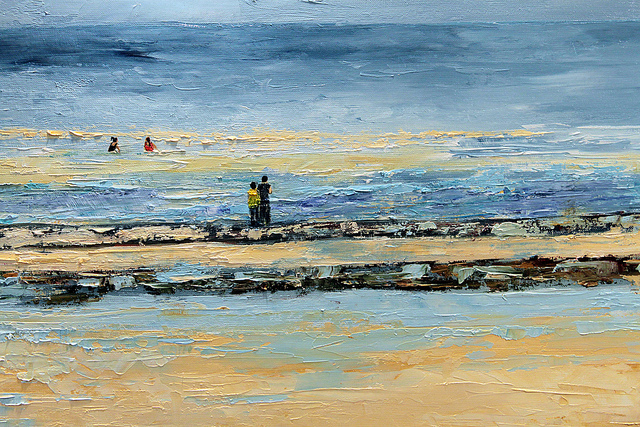
Welcome to our new column, Intern Corner! MAR has a rich tradition of including several talented, hard-working undergraduate interns among its ranks each semester. These interns work tirelessly to help keep MAR running smoothly and maintain the editors’ sanity. In this new column, our interns will have a chance to share a bit about themselves and their work at MAR. First up is Olivia Buzzacco:
Interning for the Wonderful World of MAR
by Olivia Buzzacco
In the spring of 2014, I learned that Mid-American Review was looking for interns for the upcoming school year. Some of my friends in the creative writing program encouraged me to apply, saying that it would be good experience, especially entering into my final year as an undergraduate. I went back and forth about applying for the internship, and finally decided to give it a go.
In late May, I received an email saying I had been selected for the internship at Mid-American Review, and I was elated. I felt that this was going to open up a whole new world of experiences and opportunities for me. I could not wait to get started and see how a literary journal was run, as I had no past experiences with it. I found out I would be working with three other interns, who I had already known from having classes with. This added to my excitement, as I would have other undergraduates to work with and become closer to.
However, I was also extremely nervous about starting my internship. Because I didn’t know how literary journals worked, I didn’t know what to expect at all going in. This was a nationally recognized journal that I would be working for. I didn’t know any of the staff or graduate students coming in, and I was afraid that after a week, I wouldn’t enjoy the job anymore.
But this wasn’t the case. I started interning in August of 2014 and was supposed to be done in December, but I decided to continue to intern for the whole school year. That’s how much I loved it. Working for MAR isn’t the same work and experience every day. There were so many projects and jobs I got to be a part of that each day was something new to look forward to. I got to help read fiction submissions, copyedit the manuscript, attend the graduate class every Wednesday, help prepare for Winter Wheat, and other small odd jobs and projects. There were days where I got to work with the other interns, and days where I got to work independently. I was so glad that I decided to apply for the internship, as I met so many new people and learned a lot of techniques when it comes to running a literary journal.
Interning with Mid-American Review was one of my greatest experiences in my undergraduate career at Bowling Green State University. It taught me so much about the creative writing and literary journal world and gave me experiences I hope I can continue to explore post graduation. The whole MAR staff is incredible and so welcoming to all the interns that it made me comfortable doing what I was doing. If I had a chance, I would do it all over again.

Olivia Buzzacco a creative writing major and English minor at Bowling Green State University. She currently works as a writing tutor at The Learning Commons and as a blogger for CP Rundown, Cedar Point’s blog. Olivia is from Youngstown, Ohio and has been interested in creative writing since the 7th grade. She plans to pursue graduate school next fall with a focus in fiction. Olivia likes to spend her time listening to old music and watching old movies.



